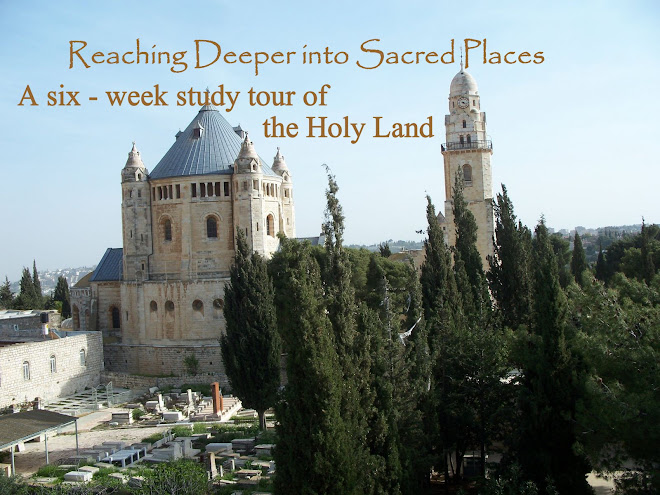Well we’re out of the Holy
Land and on our way home. This is the second time I’ve experienced Israeli
security at the airport and both times my visions of armed guards and strip
searches have been unfounded. They did not open my bags and dump out the
contents (I’ve had items damaged by TSA security at American airports). I did
not have to take off my shoes, be digitally stripped by a
machine which I think I once saw in a Star Trek movie, nor have my buttocks
patted down by a neoprene-gloved gorilla – all of which I’ve experienced more
than once in American airports. The Israelis were courteous and respectful and
amazingly non-intrusive (given, of course, that I in no manner look Arab).
We
flew from Tel Aviv to Zurich. The first thing we had to re-adjust to was being
in a place without concrete walls and check points, which actually weren’t that
bad either. These check points are increasingly being monitored by watchdog
organizations so the soldiers have to behave a little better. They actually
seemed almost human. One told me he thought I looked like Jack Nicholson (I
don’t know, maybe it was the way I arched my eyebrow as I showed him my
passport).
Zurich is a nice place to go
through but if you stay there for very long it could quickly empty out your
pocketbook. For instance, there was a McDonalds (in the old city, yet) that was
advertising what looked like the economy version of a Happy Meal for 13 francs
– about the equivalent of dollars.
Now
I thought I’d about figured out every washroom arrangement that one could
encounter traveling in that part of the world, but Zurich offered yet another
novelty. It was in the Wasserkirk (Water Church) where we went for a Bach
concert. I’d gotten used to walking into a “W.C.” seeing a wash stand and two
or more cubicles for use by both genders (all very private, of course).
Sometimes they were labeled to indicate which gender but sometimes it was first
come first served. Now this W.C. (does that stand for Where's the Charmin?) in the Wasserkirk had two cubicles. One was labeled “Toilette,”

which could go either way. The other was labeled as shown in this photograph. Fortunately all I had to do was wash my hands so I didn’t have to figure this one out. After some reflection I can only guess that it has to do with the sort of equipment that the cubicles contain.
Strasbourg was paradise;
sunny, old world, and watched over by a magnificent cathedral. I really think
that the nature of a place reflects its spiritual history. Strasbourg was a
center of the Rhineland contemplative tradition. One of my favorite Christian
mystics, Meister Eckhart, taught and preached here. And after Zurich Strasbourg
seemed downright cheap.
We are in Heidelberg now
preparing for our flight home out of Frankfurt. The weather is, once again,
chilly and cloudy – perfect weather to leave by. I think it was God who planned
our stay in Strasbourg to be so nice. Anyway, this whole journey has been
immensely fulfilling. I plan to do some deep reflecting when we return home.


























